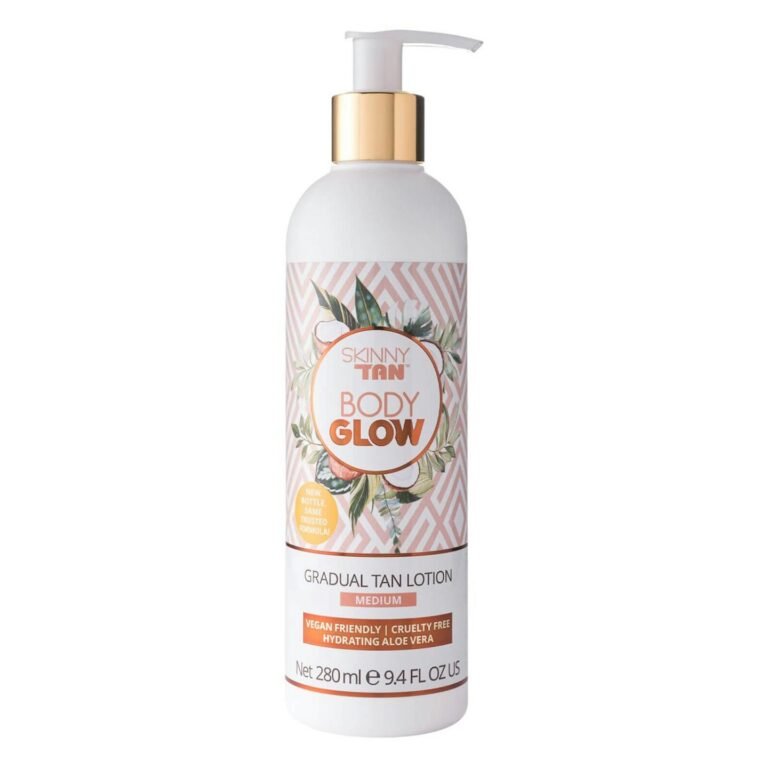Corporate Sustainability Initiative for the Beauty Industry

Introduction
Corporate sustainability initiatives are essential for driving positive change, promoting ethical business practices, and fostering environmental responsibility. In the beauty industry, these initiatives are particularly crucial to ensure sustainable procurement, packaging, and overall operations.
In this article, we will explore the Corporate Sustainability Initiative for the Beauty Industry, focusing on two key initiatives: the Responsible Beauty Initiative (RBI) and the Sustainable Packaging Initiative for Cosmetics (SPICE). These initiatives are playing a significant role in shaping the beauty industry towards a more sustainable future.
What Are Corporate Sustainability Initiatives?
Corporate sustainability initiatives are deliberate actions taken by businesses to incorporate social, environmental, and ethical considerations into their day-to-day activities. The goal is simple: to reduce harm to the planet, support fair labor practices, and contribute positively to communities. These initiatives are critical in driving positive change and creating a better future for all.
Why Are Corporate Sustainability Initiatives Important?
The importance of corporate sustainability initiatives cannot be overstated. Here’s why they matter:
- Environmental Impact: By adopting sustainable practices such as reducing greenhouse gas emissions or using renewable energy sources, companies can minimize their ecological footprint.
- Innovation Driver: Sustainability challenges often lead to creative solutions. Embracing these challenges can spark innovation within organizations and industries.
- Stakeholder Collaboration: Sustainable development requires collective action. Corporate sustainability initiatives encourage collaboration among businesses, governments, NGOs, and consumers.
- Long-Term Viability: Operating with consideration for social and environmental factors is crucial for long-term business success. Companies that ignore sustainability may face reputational damage or regulatory issues in the future.
Now that we understand the significance of corporate sustainability initiatives let’s focus on how they specifically impact the beauty industry.
Responsible Beauty Initiative (RBI)
The Responsible Beauty Initiative (RBI) plays a crucial role in promoting sustainability across the beauty industry value chain through collaborative efforts. This initiative focuses on fostering ethical, social, and environmental performance throughout the beauty supply chain. The RBI aims to achieve this by engaging suppliers in their sustainability rating and improvement journey as a peer group.
Role of EcoVadis
EcoVadis, a leading sustainability ratings platform, significantly contributes to driving the implementation of RBI principles. Through its expertise and comprehensive assessment methodologies, EcoVadis supports beauty brands in aligning with sustainable sourcing practices and continuously improving their sustainability performance.
Sustainable Sourcing Practices
Sustainable sourcing practices are integral for beauty brands committed to enhancing their sustainability footprint. By actively engaging with suppliers, these brands can ensure that the products and materials sourced comply with stringent environmental and social standards. This engagement not only strengthens the ethical and environmental aspects of the supply chain but also fosters long-term relationships built on shared sustainability goals.
Benefits of Supplier Engagement
The benefits of supplier engagement in sustainable sourcing are far-reaching. Beauty brands can achieve greater transparency and traceability in their supply chains, which is essential for meeting consumer demands for ethically sourced products. Additionally, supplier engagement facilitates knowledge sharing and innovation, enabling continuous improvements in sustainability metrics.
Sustainability Rating and Continuous Improvement
Suppliers involved in RBI undergo a rigorous process of sustainability rating and continuous improvement. This process entails comprehensive assessments of environmental impact, labor practices, ethics, and sustainable sourcing efforts. By participating in these evaluations, suppliers not only demonstrate their commitment to sustainability but also gain valuable insights for refining their operations towards greater environmental and social responsibility.
The Responsible Beauty Initiative (RBI) serves as a catalyst for driving positive change across the beauty industry value chain. Through collaborative efforts and sustainable sourcing practices, RBI empowers beauty brands to elevate their ethical and environmental performance while fostering enduring partnerships with suppliers committed to shared sustainability goals.
2. Sustainable Packaging Initiative for Cosmetics (SPICE)
The Sustainable Packaging Initiative for Cosmetics (SPICE) is an important program that focuses on making cosmetic packaging more sustainable. It aims to drive positive change in the cosmetics industry by finding innovative solutions and promoting circularity.
Why SPICE is Important
Understanding the goals and approach of SPICE helps us see why it’s so crucial:
- Addressing Environmental Concerns: The beauty industry produces a significant amount of waste through its packaging. SPICE recognizes this issue and actively works towards reducing its impact on the environment.
- Encouraging Collaboration: SPICE brings together different stakeholders in the packaging value chain, including brands, suppliers, and recyclers. This collaborative approach ensures that everyone plays a part in finding sustainable solutions.
- Driving Innovation: By exploring new materials, design concepts, and recycling methods, SPICE encourages innovation within the cosmetics packaging sector.
How SPICE Benefits Businesses
For companies operating in the cosmetics industry, participating in SPICE initiatives can offer several advantages:
- Meeting Consumer Demand: More and more consumers are seeking out eco-friendly products. By adopting sustainable packaging practices through SPICE, businesses can better meet this growing demand.
- Reducing Costs: Sustainable packaging often involves using fewer resources and optimizing materials. This can lead to cost savings for companies in the long run.
- Building Brand Reputation: Taking proactive steps towards sustainability can enhance a brand’s image and reputation among consumers who prioritize environmental responsibility.
The Role of Design Thinking and Material Choices
One key aspect of SPICE’s approach is its emphasis on design thinking and material choices. Here’s why these factors are important:
- Optimizing Packaging Design: Through design thinking principles, SPICE encourages brands to create packaging that is both functional and environmentally friendly. This could involve using less plastic, incorporating recyclable materials, or designing packaging that can be easily disassembled for recycling.
- Exploring Sustainable Materials: SPICE promotes the use of alternative materials that have a lower environmental impact, such as bio-based plastics or compostable packaging. By exploring these options, brands can make more informed choices about their packaging materials.
The Impact of Sustainable Packaging
By focusing on sustainable packaging practices, SPICE aims to create positive change throughout the entire cosmetics value chain:
- Environmental Benefits: Using less plastic, reducing waste through recycling, and choosing eco-friendly materials all contribute to minimizing the industry’s environmental footprint. This in turn has a positive impact on the environment.
- Social Responsibility: By adopting sustainable practices, brands can demonstrate their commitment to social responsibility and contribute to broader efforts towards a more sustainable future.
- Business Opportunities: As consumer demand for sustainable products continues to grow, brands that prioritize eco-friendly packaging may gain a competitive advantage in the market. The benefits of eco-friendly packaging can extend beyond just environmental impact, offering businesses an edge in
Leading the Way: Companies at the Forefront of Sustainability
The beauty industry is undergoing a significant shift towards sustainability, with companies realizing the importance of incorporating responsible practices into their operations. Several key players in the industry have taken proactive steps to lead the way in driving sustainable change. Let’s take a closer look at the sustainability efforts and accomplishments of some of these companies, including L’Oréal, Clarins, Coty, Unilever, and PepsiCo.
L’Oréal
L’Oréal, one of the largest beauty companies globally, has made sustainability a core value and has set ambitious targets to reduce its environmental footprint. The company has undertaken various initiatives aligned with RBI and SPICE principles:
- Sustainable sourcing: L’Oréal focuses on responsibly sourcing raw materials, ensuring sustainable practices throughout its supply chain. For example, they actively promote sustainable palm oil sourcing and have committed to eliminating deforestation from their supply chain by 2020.
- Circular economy: L’Oréal aims to improve packaging sustainability by promoting recycling and reducing waste. They have developed innovative packaging solutions that use recycled materials and are actively exploring ways to enhance the recyclability of their products.
- Renewable energy: The company has made significant progress in transitioning to renewable energy sources. By 2020, L’Oréal aims to power all its industrial sites with 100% renewable electricity.
Clarins
Clarins, a renowned luxury skincare brand, is dedicated to sustainability across all aspects of its business. Some notable initiatives undertaken by Clarins include:
- Biodiversity conservation: Clarins is committed to protecting biodiversity and has implemented projects such as “Beauty Coeur”, which supports reforestation efforts in Brazil’s Atlantic Forest.
- Responsible sourcing: The brand emphasizes responsible ingredient sourcing and collaborates closely with suppliers to ensure ethical practices.
- Eco-design: Clarins incorporates eco-design principles into its product development process, focusing on minimizing environmental impacts through thoughtful design and material choices.
Coty
Coty, a global beauty conglomerate, has recognized the importance of sustainable practices and is actively working towards integrating them into its operations. Some key sustainability initiatives by Coty include:
- Reducing greenhouse gas emissions: Coty has committed to reducing its absolute greenhouse gas emissions by 30% by 2030. They are investing in renewable energy sources and energy-efficient technologies to achieve this target.
- Sustainable packaging: The company aims to make all its packaging recyclable or reusable by 2025. Coty is also exploring innovative packaging materials, such as bio-sourced plastics, to reduce their environmental impact.
- Ethical sourcing: Coty places a strong emphasis on ethical sourcing and aims to ensure fair labor conditions throughout its supply chain.
Unilever
Unilever, a multinational consumer goods company, has been at the forefront of sustainability efforts across various sectors including beauty. Some notable sustainability initiatives undertaken by
The Environmental and Social Impact of Sustainable Practices
Sustainable practices in the beauty industry not only contribute to the well-being of the planet but also have a significant impact on social responsibility goals. By adopting sustainable procurement and packaging practices, beauty brands can achieve positive environmental outcomes and promote fair labor conditions in their supply chains. However, implementing comprehensive sustainability strategies also comes with its own set of challenges.
Positive Environmental Outcomes
Widespread adoption of sustainable practices in areas like procurement and packaging can lead to several environmental benefits:
- Reduced carbon footprint: Sustainable procurement practices focus on sourcing materials from suppliers with lower carbon emissions and higher energy efficiency. By selecting suppliers who prioritize renewable energy sources or use environmentally friendly production processes, beauty brands can reduce their overall carbon footprint.
- Conservation of resources: Sustainable packaging initiatives encourage the use of recycled or biodegradable materials, reducing the demand for virgin materials. This helps conserve natural resources like water, energy, and forests, minimizing the industry’s impact on ecosystems.
- Waste reduction: Packaging waste is a significant concern in the beauty industry. Sustainable packaging practices aim to minimize waste generation through innovative design and recycling initiatives. By using recyclable or refillable packaging options, brands can reduce the amount of waste sent to landfills or incineration facilities.
Contribution to Social Responsibility Goals
Corporate sustainability initiatives in the beauty industry also contribute to social responsibility goals by addressing labor conditions in supply chains and supporting marginalized communities. Some ways in which these initiatives promote social responsibility include:
- Fair labor conditions: Sustainable procurement practices emphasize the importance of ethical sourcing and fair treatment of workers throughout the supply chain. By engaging suppliers who adhere to labor standards and provide safe working conditions, beauty brands can ensure that their products are produced responsibly.
- Support for local communities: Sustainability initiatives often prioritize partnerships with local communities, particularly those affected by the beauty industry’s operations. By investing in community development projects, supporting education and healthcare initiatives, and empowering local artisans, beauty brands can create positive social impact.
Challenges Faced by Beauty Brands
Despite the numerous benefits, implementing comprehensive sustainability strategies in the beauty industry is not without its challenges. Some of the common obstacles faced by beauty brands include:
- Cost considerations: Transitioning to sustainable practices often requires upfront investments in research, development, and infrastructure changes. While these investments may yield long-term cost savings, the initial financial burden can be a deterrent for some brands, especially smaller ones with limited resources.
- Technological barriers: Adopting sustainable packaging solutions may require the use of new materials or manufacturing processes that are not yet widely available or cost-effective. Beauty brands need to navigate technological barriers and collaborate with suppliers and industry partners to overcome these challenges.
While these challenges exist, they should not discourage beauty brands from pursuing sustainability goals. Instead, they should be seen as opportunities for innovation and collaboration within the industry to find viable solutions.
The beauty industry has a responsibility to prioritize sustainability as a core value and work towards a more environmentally and socially conscious future.
Embracing a Sustainable Future in the Beauty Industry
The beauty industry is always changing, and as sustainability becomes more important, there are new trends and ideas that are shaping the way towards a more sustainable future.
Emerging Trends and Innovations
- Clean Beauty Movement: Consumers are choosing clean beauty products, which focus on natural ingredients and eco-friendly packaging. This trend is pushing companies to change their products and use more sustainable packaging.
- Zero-Waste Packaging: There is a growing focus on packaging options that produce little to no waste, like refillable containers and materials that can be composted. This trend supports the idea of a circular economy, where resources are used efficiently and waste is minimized.
- Digitalization for Transparency: The use of technology, such as blockchain and QR codes, is becoming more popular in order to provide clear information about where products come from, how they’re made, and the ethics of the supply chain. This helps build trust with consumers and promotes ethical practices.
Role of Consumer Awareness and Demand
Consumer awareness and demand are key factors in pushing companies to make sustainability a priority. As consumers become more aware of how their choices impact the environment and society, they are actively looking for brands that share their values. This change in consumer behavior has led beauty companies to rethink their strategies and incorporate sustainable practices into everything they do.
Importance of Collaboration Among Stakeholders
Collaboration among different groups is crucial for successfully making the beauty industry more sustainable. This collaboration includes not just brands and suppliers, but also government officials, industry groups, non-profit organizations, and consumers themselves. By working together, these groups can bring about big changes, influence laws and regulations, share ideas on what works best, and encourage the development of new technologies and processes that are sustainable.
By following these new trends and ideas while also listening to what consumers want in terms of sustainable products, the beauty industry can lead the way in creating a future where the environment is protected.
Sustainability isn’t just about one or two things; it requires everyone involved to make changes that will benefit both the planet and society as a whole.
Conclusion
Encourage readers to take action by supporting brands that are committed to sustainable practices and holding companies accountable for their environmental and social impacts.
The beauty industry is at a critical point where the decisions made today will greatly affect our planet’s future. As consumers, you have the power to bring about change through your purchases. By consciously opting to back brands that prioritize corporate sustainability, you can contribute to the joint effort for a more environmentally and socially responsible beauty industry.
Taking Action
- Support Sustainable Brands: Look for certifications and initiatives such as RBI and SPICE when making purchasing decisions. By choosing products from companies actively engaged in corporate sustainability, you are endorsing their commitment to making a positive difference.
- Hold Companies Accountable: Use your voice as a consumer to demand transparency and accountability from beauty brands. Encourage companies to uphold ethical and sustainable practices throughout their supply chain, from sourcing ingredients to packaging.
- Stay Informed: Keep yourself updated on the latest developments in corporate sustainability within the beauty industry. Follow industry news, read reports on sustainability initiatives, and engage with like-minded individuals to stay informed and empowered.
Driving Positive Change
Your support for corporate sustainability in the beauty industry goes beyond individual actions; it represents a collective call for change. By aligning your choices with sustainable values, you are influencing companies to reassess their practices and prioritize ethical and environmentally conscious approaches.
As we wrap up, remember that your role as a consumer holds significant influence in shaping the future of the beauty industry’s corporate sustainability landscape. Embrace this opportunity to be part of a transformative movement towards a more responsible and sustainable world.
Together, let us champion corporate sustainability in the beauty industry, creating a ripple effect of positive impact for generations to come.
Your choices matter – make them count.









